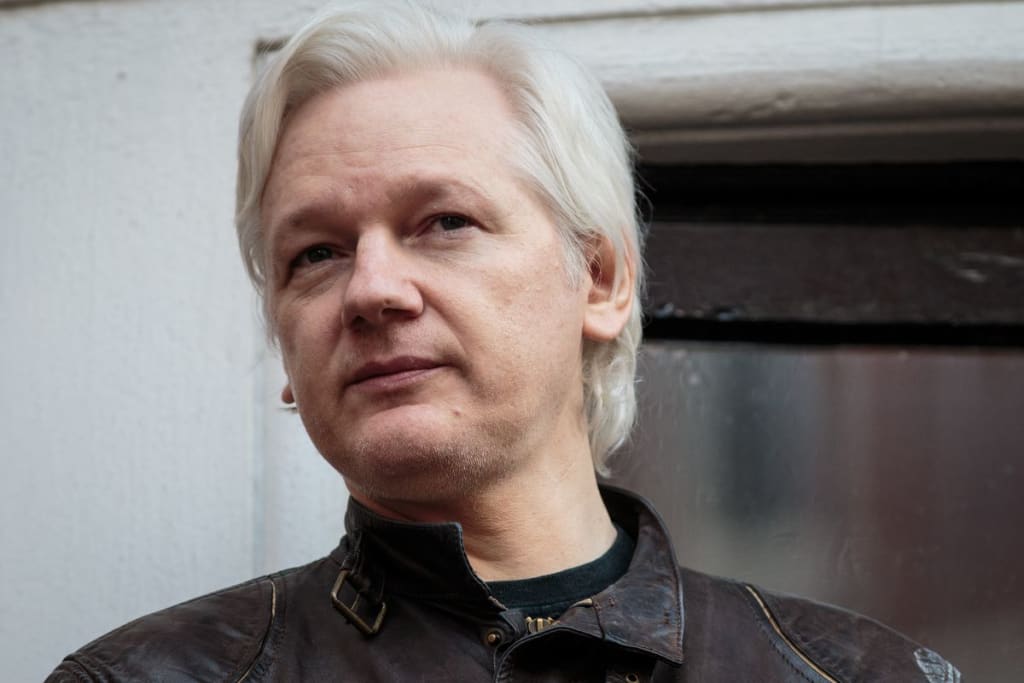Knowledge Is Power: Why Julian Assange Is a Champion of Democracy
By exposing harsh realities to the American public, Julian Assange is directly returning power back to the common people from the hands of a ruling class that wishes to keep its atrocities secret. Because after all, knowledge is power.

Love him or hate him, the arrest of Julian Assange is most certainly a travesty of not only justice, but also of the core democratic values that the Western world prides itself on. Of course, politicians in Washington are rather delighted to see the downfall of a modern-day muckraker who has exposed the US government on numerous occasions throughout the years. Yet, it has been quite stunning to see that many common American citizens on both sides of the political spectrum seem to be celebrating Assange’s arrest and advocating for his potential extradition to the US, where he could be subject to government sanctioned-torture (“enhanced interrogation,” if you prefer euphemisms) and serve a lifelong sentence at a maximum security prison. Unfortunately, the reason why so many American citizens are cheering on the prosecution of Assange is because those who are born into the free world oftentimes take democracy for granted - so much to the extent that they forget to acknowledge what such a term really means, and are therefore rendered incapable of understanding precisely why his arrest would represent a threat to the fundamental pillars of democracy itself.
On an intrinsic level, democracy is a society in which power is derived from the people. In other words, the state is governed by the general will of common citizens rather than a group of elites who claim authority by right of divinity or inheritance. During archaic times, lower classes of citizens were suppressed by despotic regimes because they did not dare to challenge authority. Part of the reason why was due to a lack of mass media, which serves to disseminate knowledge to the people. Since ordinary citizens lacked even a basic understanding about the functions of the society in which they lived, they were unable to recognize when the ruling class was mismanaging its nation or even abusing its power. Thus, it logically follows that pioneers of the revolutionary notions of enlightened democratic society emphasized the importance of a free press, especially one that is adversarial to power and challenges authority. In laying the groundwork for the world’s first democratic nation, America’s founding fathers so greatly valued the role of the media that they felt compelled to ensure its freedom in the very first provision of the Constitution.
Under the protection of the First Amendment, the media has gone great lengths to divulge secrets to the public and hold the powerful accountable throughout U.S. history. During the Progressive era in the early 1900s, for instance, investigative journalists nicknamed “muckrakers” exposed the corruption of politicians and the mismanagement of large corporations and public institutions. Upton Sinclair revealed the unsafe and unsanitary standards of the meatpacking industry, Jacob Riis documented the poor living conditions of inner cities, and Lincoln Steffens investigated the corruption in municipal governments across the country. The contributions of these journalists most definitely spurred necessary change; since then, the FDA has provided strict food safety regulations, living conditions in urban areas have improved, and political corruption is at least much less direct than it had been in the past.
At last, we now come to the case of Julian Assange, the founder of WikiLeaks, a website dedicated to revealing injustices around the world. In 2010, he published a series of leaks provided by former US soldier Chelsea Manning, including the Collateral Murder video, Iraq War Logs, and Afghan War Logs, all of which exposed killings of innocent civilians and potential war crimes. His latest charge stems from a computer-hacking allegation in relation to these leaks, which carries a maximum sentence of five years, although more indictments could come if Assange is extradited to the US.
In earning the contempt of the American government and intelligence agencies for leaking information about their wrongdoings to the public, Julian Assange should be regarded as a proponent of democracy. By exposing harsh realities to the American citizens that they otherwise would not have known, he is directly returning power back to the people from the hands of those who would like to keep their atrocities secret, because after all, knowledge is power. An understanding of the truth, regardless of how grim it may be, allows ordinary people to make well-informed decisions regarding the positions they support and the politicians they elect. It’s reasonable to assume that few people in good faith would support elected officials who advocate for the indiscriminate killings of civilians as documented by Assange’s WikiLeaks. Therefore, the public’s collective lack of cognizance of the war crimes perpetrated by the U.S. government is exactly what enables these politicians to stay in power and allows the same policies to continue to be enacted, which certainly do not reflect the genuine will of the American people. As one cannot see while in the dark, one cannot make proper decisions without all the important information at hand. A nation in which citizens are deprived of the critical knowledge that would enable them to make crucial decisions that truly reflect their sentiments is the antithesis of a representative democracy—hence, the reason why Assange’s actions render him none less than a champion of democracy.
“If wars can be started by lies, peace can be started by truth.”—Julian Assange






Comments
There are no comments for this story
Be the first to respond and start the conversation.